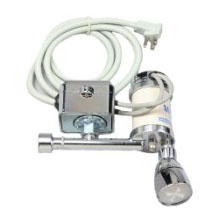
Electric Heaters Resources
- Home
- Efficient Electric Heaters
- Electric Heaters for Different Rooms
- Outdoor Electric Heaters
- Portable Electric Heaters
- 12 Volt Electric Heaters
- 220 Volt Heater
- 3 Phase Electrical Heater
- Above Ground Pool Electric Heater
- Antique Electric Heaters
- Baseboard Electronic Heaters
- Bathroom Electric Heaters
- Best Electric Heaters
- Buy Electric Heaters
- Car Electric Heaters
- Ceiling Electric Heaters
- Ceiling Mounted Electric Heaters
- Ceramic Electric Heaters
- Cheap Electric Heaters
- Commercial Electric Heaters
- Compact Electric Heaters
- Convection Electric Heaters
- DC Electric Heaters
- Economical Electric Heaters
- Efficient Electric Heaters
- Electric Heater Reviews
- Electric Heater With Thermostat
- Fahrenheat Electric Heaters
- Fan Forced Electric Heaters
- Fireplace Electric Heaters
- Flat Panel Electric Heaters
- Floor Electric Heaters
- Forced Air Electric Heaters
- Free Standing Electric Heaters
- General Electric Heaters
- Greenhouse Electric Heaters
- Halogen Electric Heaters
- Hanging Electric Heaters
- Heavy Duty Electric Heaters
- High Efficiency Electric Heaters
- Home Electric Heaters
- In Wall Electric Heaters
- Indoor Electric Heaters
- Industrial Electric Heaters
- Infrared Electric Heaters
- Infrared Electric Heater Reviews
- Large Electric Heaters
- Large Room Electric Heaters
- Low Wattage Electric Heaters
- Marine Electric Heater
- Mini Electric Heaters
- Non Electric Heaters
- Oil Electric Heaters
- Oil Filled Electric Heaters
- Overhead Electric Heaters
- Panel Electric Heaters
- Patio Electric Heaters
- Plug in Electric Heaters
- Process Electric Heaters
- Radiant Electric Heaters
- Recessed Electric Heaters
- Residential Electric Heaters
- RV Electric Heaters
- Safe Electric Heaters
- Small Electric Heaters
- Small Portable Electric Heaters
- Solar Electric Heaters
- Spa Electric Heaters
- Space Electric Heaters
- Swimming Pool Electric Heaters
- Toe kick Electric Heaters
- Tubular Electric Heaters
- Types of Electric Heaters
- Used Electric Heaters
- Vintage Electric Heaters
- Wall Electric Heaters
- Warehouse Electric Heaters
- Electric Heaters FAQ
RV electric heaters
Electric heaters for your RV
The traditional RV was built with fine weather weekend getaways and family outings in mind, and are unsuitable for use in cold weather, as there are no built in heating systems. However, there are people who use RVs as their travelling home, and even need to endure the chilling winter months in their RV, despite it being not equipped for the cold.
But now, RV owners have the option to install heaters in their moving home, to keep themselves warm and comfortable throughout the winter. If there is access to a generator or a mains power source, portable RV electric heaters will work great for you, to warm up your motorhome to make it suitable for living and outings in the colder months.
Types of RV electric heaters
There is more than one type of RV electric heaters that you can consider to install in your RV. These include electric fan heaters, ceramic heaters, and convection heaters. Radiant electric heaters and oil filled column heaters are not recommended for use in RVs, as they are unsafe and use up a lot of electric current respectively.
- Electric fan heaters – Instantaneous heat can be supplied by this type of heaters. However, they are comparatively less economically efficient and less safe. Generally electric fan heaters are less silent, as noise is produced by the fan when it is running.
- Ceramic heaters – In the range of electric heaters, ceramic heaters are one of the most energy efficient varieties. Most models have a built in fan, in order to warm larger spaces effectively. In some models, there are also heat sensors to aid in maintaining the temperature in the space. But when looking for a ceramic heater, find one without radiant heating elements that are exposed and with safety features like tilt safety cut-off switches and thermostats. Ceramic heaters are also not suitable to be used with any extension cords.
- Convection heaters – Convection heaters, on the other hand are more for long heating periods rather than fast heating. They work based on natural convection, with its hot air rising and replaced by the cool air drawn over the heating element. Similar to electric fan heaters, their surfaces remain cool, reducing risks of fire or scalding. Convection heaters with fans are more effective, as they can disperse the heated air around the space. However, one downside of convection heaters as RV electric heaters is that they take up a lot of floor space, which is limited in RVs. Besides, some models can be a little noisy if they contain a fan within their body. Some convection heaters may also feature a timer, electronic thermostat, remote control, frost watch, and a thermal cut-out or tilt switch.
In conclusion, it should not be difficult to choose the electric heater that suits your needs, as different RV electric heaters have their own pros and cons. Nevertheless, no matter which heater you decide to buy in the end, it is a must to follow the safety precautions highlighted in your instruction manual, to ensure a safe warming experience.
